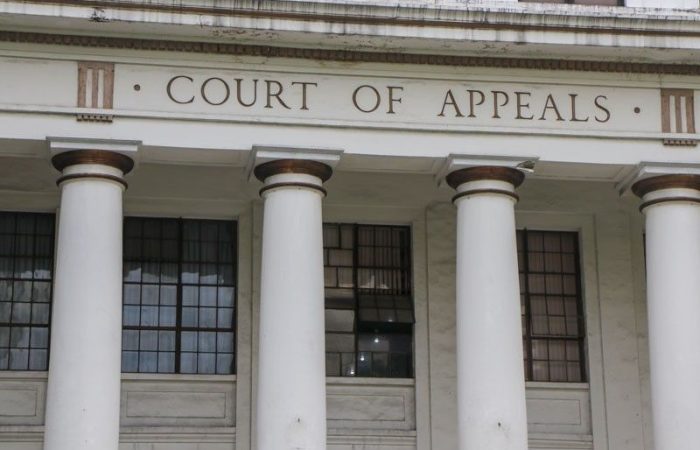By Brian Silver
Arrest records can be a hindrance to an innocent person’s ability to obtain employment, receive an education, or establish credit. An expungement is used to seal all police and court records pertaining to a specific criminal case. While the records are not permanently destroyed, the public’s access to them is restricted. In Virginia, an individual’s right to expunge criminal records is governed by Virginia Code § 19.2-392.2[1] The statute details when an individual is eligible for an expungement, the legal components that a judge will use to determine the petitioner’s eligibility, and the steps an individual has to take in order to petition for an expungement.
After the record is expunged, you may legally deny the existence of the record. Additionally, you cannot be denied any permit, license, or employment based on the expunged record.[2] After expungement, the only time when another individual may be granted access to the record is when a law-enforcement agency needs the record for purposes of an employment application to work for the agency, or for a pending criminal investigation where life or property would be jeopardized without immediate access to the record.[3] If your record is expunged, you may also have the ability to expunge your DNA profile that was authorized due to the arrest.[4]
I. Am I Eligible for an Expungement?
You hold the right to petition for an expungement if any of the following circumstances apply; (1) you were acquitted of a crime;[5] (2) criminal charges against you were dismissed;[6] (3) the prosecution entered a declaration of nolle prosequi;[7] (4) someone else committed a crime using your identification information;[8] or (5) you received an absolute pardon.[9]
In order to be eligible for an expungement, you must maintain a claim of innocence for the crime you were charged with. However, an exception to the rule exists if you receive an absolute pardon.[10] After being found guilty of a crime, the state may later grant you a pardon in one of three manners; (1) a simple pardon, whereby the state officially forgives your crime; (2) a conditional pardon, whereby an individual who is still imprisoned may be eligible for early release; and (3) an absolute pardon, whereby the state officially recognizes your innocence. Only under the third scenario will you have the ability to petition for an expungement. If you plead nolo contendre, or “no contest,” you would not be eligible, as you would be pleading guilty for sentencing purposes.
II. How Does a Court Weigh the Merits of my Petition?
When considering whether to grant your expungement petition, a court will determine whether allowing your criminal record to remain public presents a “manifest injustice.”[11] While courts use several factors to draw its conclusion, demonstrating that the record’s publicity could harm your employment, educational, or credit prospects can assist in displaying that a “manifest injustice” is present. Additionally, in cases involving an acquittal, the decisions from each court involved in your case may be utilized. For example, a court may be more likely to expunge your record if you were acquitted by a trial court, rather than if you were found guilty by a trial court and later acquitted by an appellate court. If the court finds that disclosure of your record presents satisfies the criteria, your record will be expunged.
An exception to the “manifest injustice” standard exists if the record you are looking to expunge was for a misdemeanor charge and you otherwise have a clean criminal record. In this case, unless good cause for keeping the record disclosed is shown by the Commonwealth, you are entitled to have the record expunged.[12]
III. How Do I File a Petition?
1. First, you will need to file a petition with the appropriate Circuit Court in the city of county where your case was handled.[13] Three additional copies of your petition will be needed throughout the process, including one that you should keep as proof of filing with the court. Along with the petition, you will need to provide a copy of either the warrant or indictment with the court where the case took place.[14] The following must be included in the petition; (1) the date of arrest; (2) the name of the arresting agency; (3) the specific charge you wish to be expunged; (4) the date of the final disposition of the charge to be expunged; (5) your date of birth; and (6) your full name at the time of the arrest.[15]
2. The petition is then served on the Commonwealth Attorney (CA), who is the named Defendant.[16] Once the petition has been filed, a hearing is set approximately eight to ten weeks later on the Circuit Court’s civil motions docket.
3. The CA then has 21 days to respond to the petition upon being served.[17] The CA will state in its response that it either does or does not object to the expungement. If it does not object, then the scheduled hearing will simply consist of an order directing the judge to expunge the records. If the CA objects, a hearing will be held to determine whether the records’ disclosure presents manifest injustice to you.
4. During the time period between filing the petition and the hearing, you would need to obtain two copies of your fingerprints.[18] Unfortunately, the set obtained when the arrest occurred are not available for this process. New fingerprint cards can be obtained at the corresponding Sheriff’s Department, which are then sent along with a copy of your petition to the State Police.[19] The final copy of your petition is retained by the Police Department. The State Police run a criminal history report and mail the report back to the court. The fingerprints need to be obtained as soon as possible after you file the petition to prevent any delay in getting the report back to the court, as it usually takes four to six weeks for the court to receive the report from the State Police.
5. If the expungement is granted, the court’s order is sent to the State Police, the entity responsible for expunging the records.[20] If the petition for expungement is denied, then the records continue to exist and be disseminated.
IV. Cost
The following are the costs for each expense incurred during the process:[21]
- Filing fee: $86
- Sheriff’s service fee for filing: $12
- Fingerprints: $15
If you are looking to expunge a record because someone else committed a crime using your identity, you are not required to pay the fee for filing the petition, though other fees still apply.[22]
You are not required to hire an attorney to file a petition for expungement, but it almost certainly
will be easier and more convenient. Feel free to contact us.
[1] Virginia Code § 19.2-392.2.
[2] Virginia Code § 19.2-392.4(B).
[3] Virginia Code § 19.2-392.3(B).
[4] Virginia Code § 19.2-310.7.
[5] Virginia Code § 19.2-392.2(A).
[6] Id.
[7] Id.
[8] Virginia Code § 19.2-392.2(B).
[9] Virginia Code § 19.2-392.2(I).
[10] Virginia Code § 19.2-392.2(I).
[11] Virginia Code § 19.2-392.2(F).
[12] Virginia Code § 19.2-392.2(F).
[13] Virginia Code § 19.2-392.2(C).
[14] Id.
[15] Id.
[16] Virginia Code § 19.2-392.2(D).
[17] Virginia Code § 19.2-392.2(D).
[18] Virginia Code § 19.2-392.2(E).
[19] Id.
[20] Virginia Code § 19.2-392.2(K).
[21] Virginia Code § 17.1-275.
[22] Virginia Code § 19.2-392.2(B).




Need my record cleaned, misdemeanor
@Francoise — Depending on the disposition of your charge/record, you may be eligible for expungement (but not if you plead guilty or were found guilty). Feel free to call my office if you’d like to discuss.
Shoplifting
Need my record cleaned